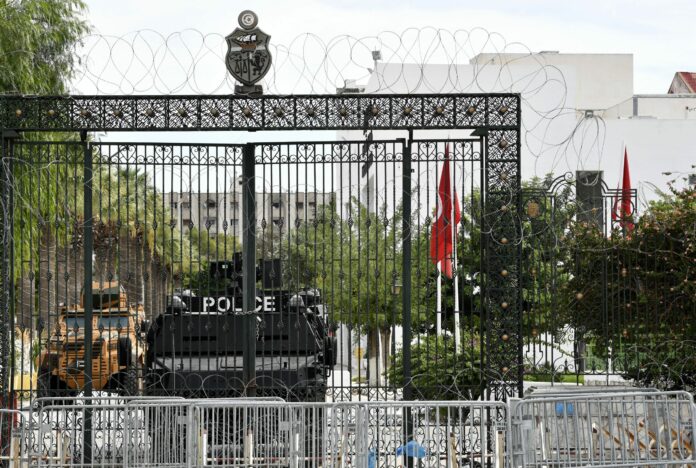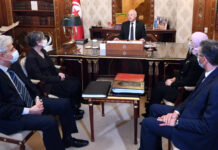
As a result of putting an end to all grants and privileges to members of the Assembly of the Representatives of the People, the controversy has escalated in the recent period, especially after the issuance of Presidential Order 117 on September 22, 2021.
Some consider the matter “unfair and illegal,” especially with regard to representatives who have been denied parliamentary grants and are, at the same time, prohibited from their salaries and monthly wages in their previous jobs , because they are not direct to work, some others see that the parliamentarians do not receive their grants as a “normal thing”, given that Parliament is frozen and does not work.
In a statement to the Tunis Africa News Agency, today, Wednesday, the Secretary-General of the frozen parliament, Adel Hanchi, said that more than 100 MPs belonging to the public and private sectors and retirees find themselves today without a grant in October (not counting the representatives from businessmen or Self-employed people), noting that this “may continue during the remainder of the parliamentary session,” after the issuance of Presidential Order No. 117 on September 22.
Hanchi said that a number of deputies contacted the parliament administration inquiring about the legal status of their grants. As soon as they learned that they would not receive grants month, they asserted that they would file a case with the Administrative Court to invalidate this order.
Nabil Hajji, a member of the frozen parliament, stated that it is not possible for deputies to submit their resignations from the parliament. “In order for the resignation to be effective, it must go through a clear legal path, which is submitting the resignation to the legal representative of the parliament, then presenting it in the meeting of the Parliament’s office, examining it and presenting it during a plenary session, and it must be issued in the end with the official report of the parliament’s deliberations,” he explained.
“This legal impasse,” according to Hajji, can be addressed through two solutions, the first of which is to announce the dissolution of Parliament, and the second is to issue a presidential order requiring, on an exceptional basis, the return of civil servants to their previous activities, pending a final decision on this issue.
Although many representatives considered that their resignations were not possible under these circumstances, legal opinions differed with this opinion.
Professor of Administrative Law, Mohamed Ayadi, said in a statement to TAP that “material impossibility justifies resorting to exceptional measures,” so that the deputy can submit his resignation to the presidency of the government, which in turn will end the state of inaction for public officials, and thus the representative can submit evidence for the termination of his mission as a deputy, with his original institution, and hence the recovery of his profession and his monthly wage.
It should be recalled that the President of the Republic, Kais Saied, issued on September 22, 2021 a presidential order within the framework of exceptional measures, one of its provisions stipulating the continuation of suspending all the functions of the Assembly of the Representatives of the People, continuing to lift the parliamentary immunity of all its members, and putting an end to all grants and privileges granted to the Speaker of the House of Representatives of the people and its members.










